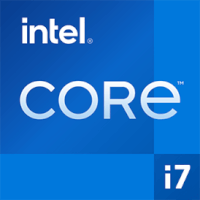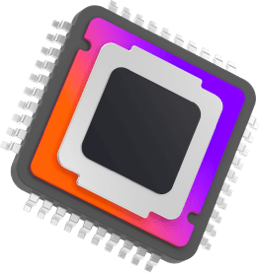| Intel Core i7-4702HQ | AMD Epyc 7501 | |
| 37 W | Max TDP | 180 W |
| NA | Consumo de energia por dia (kWh) | NA |
| NA | Custo de funcionamento por dia | NA |
| NA | Consumo de energia por ano (kWh) | NA |
| NA | Custo de funcionamento por ano | NA |
Intel Core i7-4702HQ vs AMD Epyc 7501

O Intel Core i7-4702HQ opera com 4 núcleos e 8 threads de CPU. É executado em 3.20 GHz base 2.90 GHz todos os núcleos enquanto o TDP está definido em 37 W .O processador está conectado ao soquete da CPU BGA 1364 Esta versão inclui 6.00 MB de cache L3 em um chip, suporta canais de 2 DDR3-1600 e recursos 3.0 PCIe Gen 16 lanes. Tjunction mantém abaixo de -- graus C. Em particular, Haswell H Arquitetura é aprimorada com 22 nm e suporta VT-x, VT-x EPT, VT-d . O produto foi lançado em Q2/2013

O AMD Epyc 7501 opera com 32 núcleos e 8 threads de CPU. É executado em 3.00 GHz base 2.60 GHz todos os núcleos enquanto o TDP está definido em 180 W .O processador está conectado ao soquete da CPU SP3 Esta versão inclui 64.00 MB de cache L3 em um chip, suporta canais de 8 DDR4-2666 e recursos 3.0 PCIe Gen 128 lanes. Tjunction mantém abaixo de -- graus C. Em particular, Naples (Zen) Arquitetura é aprimorada com 14 nm e suporta AMD-V, SVM . O produto foi lançado em Q3/2017
Detalhes de comparação
| 2.20 GHz | Frequência | 2.00 GHz |
| 4 | Núcleos | 32 |
| 3.20 GHz | Turbo (1 núcleo) | 3.00 GHz |
| 2.90 GHz | Turbo (todos os núcleos) | 2.60 GHz |
| Hyperthreading | Yes |
|
| Overclocking | No |
|
| normal | Arquitetura Central | normal |
| Intel HD Graphics 4600 | GPU | no iGPU |
| 1.15 GHz | GPU (Turbo) | No turbo |
| 22 nm | Tecnologia | 14 nm |
| 1.15 GHz | GPU (Turbo) | No turbo |
| 11.1 | Versão DirectX | |
| 3 | Máx. monitores | |
| DDR3-1600 | Memória | DDR4-2666 |
| 2 | Canais de memória | 8 |
| Memória máxima | ||
| ECC | Yes |
|
| -- | L2 Cache | -- |
| 6.00 MB | L3 Cache | 64.00 MB |
| 3.0 | Versão PCIe | 3.0 |
| 16 | PCIe lanes | 128 |
| 22 nm | Tecnologia | 14 nm |
| BGA 1364 | Soquete | SP3 |
| 37 W | TDP | 180 W |
| VT-x, VT-x EPT, VT-d | Virtualização | AMD-V, SVM |
| Q2/2013 | Data de lançamento | Q3/2017 |
Cinebench R20 (Single-Core)
O Cinebench R20 é o sucessor do Cinebench R15 e também é baseado no Cinema 4 Suite. Cinema 4 é um software usado mundialmente para criar formas 3D. O teste de núcleo único usa apenas um núcleo de CPU, a quantidade de núcleos ou capacidade de hyperthreading não conta.
Cinebench R20 (Multi-Core)
O Cinebench R20 é o sucessor do Cinebench R15 e também é baseado no Cinema 4 Suite. Cinema 4 é um software usado mundialmente para criar formas 3D. O teste multi-core envolve todos os núcleos da CPU e tira uma grande vantagem do hyperthreading.
Cinebench R15 (Single-Core)
O Cinebench R15 é o sucessor do Cinebench 11.5 e também é baseado no Cinema 4 Suite. Cinema 4 é um software usado mundialmente para criar formas 3D. O teste de núcleo único usa apenas um núcleo de CPU, a quantidade de núcleos ou capacidade de hyperthreading não conta.
Cinebench R15 (Multi-Core)
O Cinebench R15 é o sucessor do Cinebench 11.5 e também é baseado no Cinema 4 Suite. Cinema 4 é um software usado mundialmente para criar formas 3D. O teste multi-core envolve todos os núcleos da CPU e tira uma grande vantagem do hyperthreading.
Geekbench 5, 64bit (Single-Core)
Geekbench 5 é um benchmark de plataforma cruzada que usa muito a memória do sistema. Uma memória rápida empurra muito o resultado. O teste de núcleo único usa apenas um núcleo de CPU, a quantidade de núcleos ou capacidade de hyperthreading não conta.
Geekbench 5, 64bit (Multi-Core)
Geekbench 5 é um benchmark de plataforma cruzada que usa muito a memória do sistema. Uma memória rápida empurra muito o resultado. O teste multi-core envolve todos os núcleos da CPU e tira uma grande vantagem do hyperthreading.
iGPU - FP32 Performance (Single-precision GFLOPS)
O desempenho teórico de computação da unidade gráfica interna do processador com precisão simples (32 bits) em GFLOPS. GFLOPS indica quantos bilhões de operações de ponto flutuante o iGPU pode realizar por segundo.
Geekbench 3, 64bit (Single-Core)
Geekbench 3 é um benchmark de plataforma cruzada que usa muito a memória do sistema. Uma memória rápida empurra muito o resultado. O teste de núcleo único usa apenas um núcleo de CPU, a quantidade de núcleos ou capacidade de hyperthreading não conta.
Geekbench 3, 64bit (Multi-Core)
Geekbench 3 é um benchmark de plataforma cruzada que usa muito a memória do sistema. Uma memória rápida empurra muito o resultado. O teste multi-core envolve todos os núcleos da CPU e tira uma grande vantagem do hyperthreading.
Cinebench R11.5, 64bit (Single-Core)
O Cinebench 11.5 é baseado no Cinema 4D Suite, um software popular para gerar formulários e outras coisas em 3D. O teste de núcleo único usa apenas um núcleo de CPU, a quantidade de núcleos ou capacidade de hyperthreading não conta.
Cinebench R11.5, 64bit (Multi-Core)
O Cinebench 11.5 é baseado no Cinema 4D Suite, um software popular para gerar formulários e outras coisas em 3D. O teste multi-core envolve todos os núcleos da CPU e tira uma grande vantagem do hyperthreading.
Estimated results for PassMark CPU Mark
Alguns dos CPUs listados abaixo foram testados por CPU-Comparison. No entanto, a maioria das CPUs não foi testada e os resultados foram estimados por uma fórmula proprietária secreta de CPU-Comparison. Como tal, eles não refletem com precisão os valores reais da marca Passmark CPU e não são endossados pela PassMark Software Pty Ltd.
Monero Hashrate kH/s
A criptomoeda Monero usa o algoritmo RandomX desde novembro de 2019. Este algoritmo PoW (prova de trabalho) só pode ser calculado de forma eficiente usando um processador (CPU) ou uma placa gráfica (GPU). O algoritmo CryptoNight foi usado para Monero até novembro de 2019, mas pode ser calculado usando ASICs. RandomX se beneficia de um grande número de núcleos de CPU, cache e uma conexão rápida da memória por meio de tantos canais de memória quanto possível

Estimativa de uso elétrico


